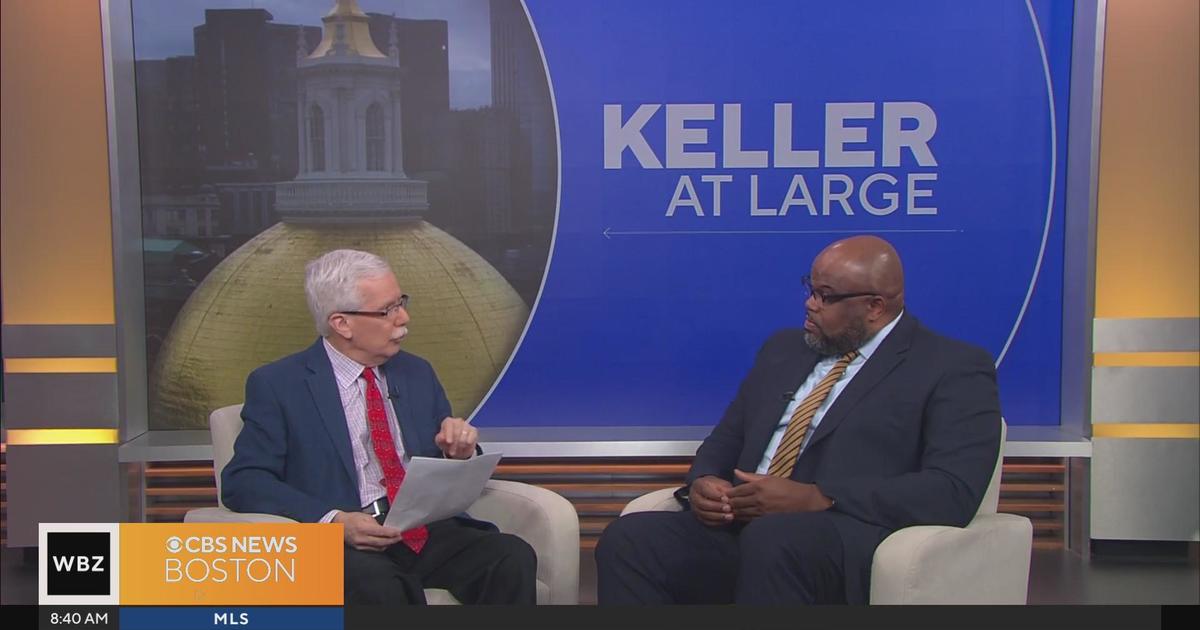BOSTON – In a significant development in the ongoing debate over educational standards in Massachusetts, Governor Maura Healey has announced her opposition to the Massachusetts Teachers Association (MTA)-led ballot question aiming to eliminate the MCAS (Massachusetts Comprehensive Assessment System) as a high school graduation requirement. This stance, articulated by Massachusetts Secretary of Education Patrick Tutwiler during an interview with WBZ political analyst Jon Keller, underscores the administration’s commitment to maintaining a uniform standard for high school graduation across the state.
The Current Debate
The proposed ballot question, if passed, would remove the MCAS as a mandatory criterion for high school graduation, a move that has garnered both support and criticism. Proponents of the ballot question argue that the MCAS imposes undue stress on students and does not accurately reflect a student’s overall abilities or potential. On the other hand, opponents, including Governor Healey and Secretary Tutwiler, believe that eliminating the MCAS would lead to a lack of standardized criteria, effectively creating 351 different graduation standards across Massachusetts’ cities and towns.
Secretary Tutwiler’s Perspective
During his conversation with Jon Keller, Secretary Tutwiler emphasized the importance of having a consistent standard for high school graduation. “That question, if it passes, would deliver us to a place of no standard – essentially 351 different standards for high school graduation,” Tutwiler stated. “I don’t believe that is the right direction to go, the governor does not believe that it’s the direction to go.”
Tutwiler’s remarks highlight a fundamental concern: without a unified standard like the MCAS, each district could set its own criteria for graduation, potentially leading to significant disparities in educational outcomes and the value of a high school diploma across the state. This fragmentation, according to Tutwiler, would undermine the accountability and comparability that a standardized test like the MCAS provides.
The Role of the MCAS
The MCAS has been a staple of Massachusetts’ education system since its inception in 1993 as part of the Education Reform Act. It was designed to ensure that all students, regardless of their background or where they live, meet a basic level of proficiency in key academic areas before graduating from high school. The test assesses students in English Language Arts, Mathematics, and Science and Technology/Engineering.
While the ballot question seeks to remove the MCAS as a graduation requirement, it does not eliminate standardized testing altogether. Federal law mandates that students take standardized tests in English and Math from third through eighth grade and at least once during high school. Tutwiler noted, “The test will stay there. It’ll still be important because it’s part of the accountability system.”
Arguments For and Against the Ballot Question
Supporters’ Viewpoint
Supporters of the ballot question argue that the MCAS is a high-stakes test that puts excessive pressure on students and educators alike. They contend that the test can disproportionately impact students from disadvantaged backgrounds, including those with disabilities and English language learners, who may struggle with standardized testing formats. The MTA and other proponents believe that graduation should be based on a more holistic evaluation of a student’s capabilities and accomplishments rather than a single test.
Opponents’ Viewpoint
Opponents, including Governor Healey and Secretary Tutwiler, argue that the MCAS serves as an essential tool for maintaining educational standards and ensuring that all students graduate with a certain level of competency. They assert that removing the MCAS could lead to inconsistencies in graduation requirements across different districts, ultimately diluting the quality and meaning of a high school diploma in Massachusetts.
Implications of Eliminating the MCAS Requirement
The potential elimination of the MCAS graduation requirement raises several important questions and concerns about the future of education in Massachusetts. One major concern is the potential for unequal educational standards and the subsequent impact on students’ preparedness for college and careers. Without a uniform standard, there is a risk that students in different districts may not receive the same quality of education or be held to the same expectations.
Furthermore, the removal of the MCAS requirement could affect the state’s ability to measure and improve educational outcomes. Standardized testing provides valuable data that helps educators and policymakers identify areas of need and allocate resources effectively. Without the MCAS, there could be a gap in the data necessary for informed decision-making and policy development.
Governor Healey’s Vision for Education
Governor Healey’s opposition to the ballot question aligns with her broader vision for education in Massachusetts, which emphasizes equity, accountability, and high standards for all students. By maintaining the MCAS as a graduation requirement, Healey aims to ensure that every student, regardless of their socioeconomic status or geographic location, has access to a high-quality education and is prepared for future success.
Healey’s administration is likely to focus on supporting students and educators in ways that complement standardized testing, such as providing additional resources for schools, investing in teacher professional development, and addressing the broader challenges that impact student learning, including socio-economic disparities and mental health issues.
Moving Forward
As the debate over the MCAS graduation requirement continues, it is clear that both sides are passionate about the future of education in Massachusetts. The upcoming ballot question will provide voters with the opportunity to voice their opinions on this critical issue and decide the direction of the state’s education system.
For now, Governor Healey and Secretary Tutwiler’s stance represents a commitment to maintaining a standardized approach to graduation requirements, ensuring that all students are held to the same high standards and are well-prepared for the challenges of the future. As this conversation evolves, it will be essential for all stakeholders to consider the best ways to support and enhance the educational experiences of Massachusetts’ students while maintaining rigorous and equitable standards.
Conclusion
The debate over the MCAS graduation requirement in Massachusetts highlights the complexities of educational policy and the diverse perspectives on how to best prepare students for success. Governor Maura Healey’s opposition to the MTA-led ballot question underscores her commitment to maintaining consistent standards and accountability in the state’s education system. As voters consider this issue, the focus must remain on ensuring that all students receive a high-quality education that equips them with the skills and knowledge they need to thrive in an ever-changing world.




